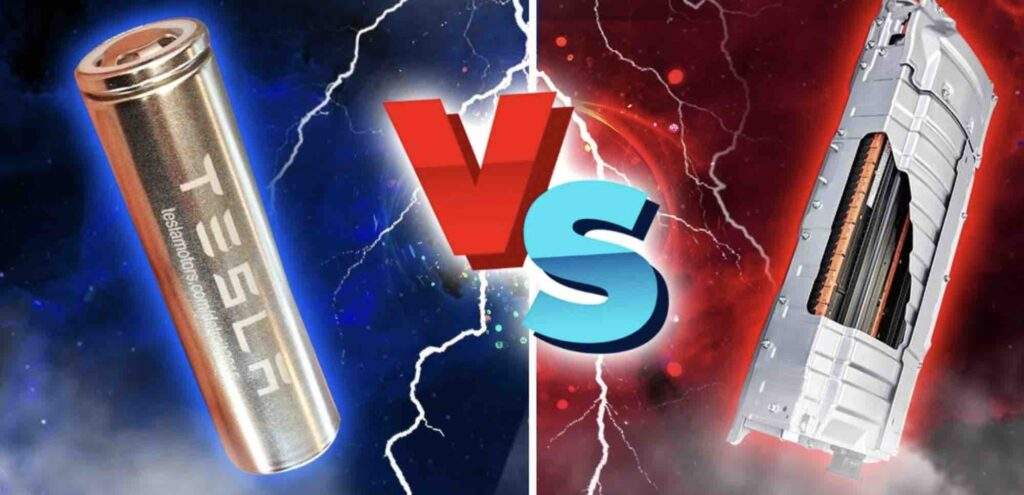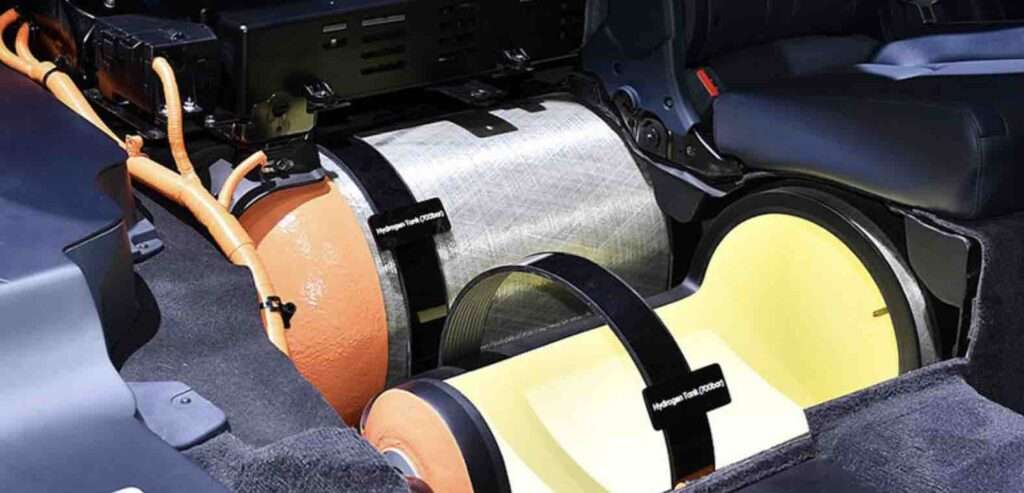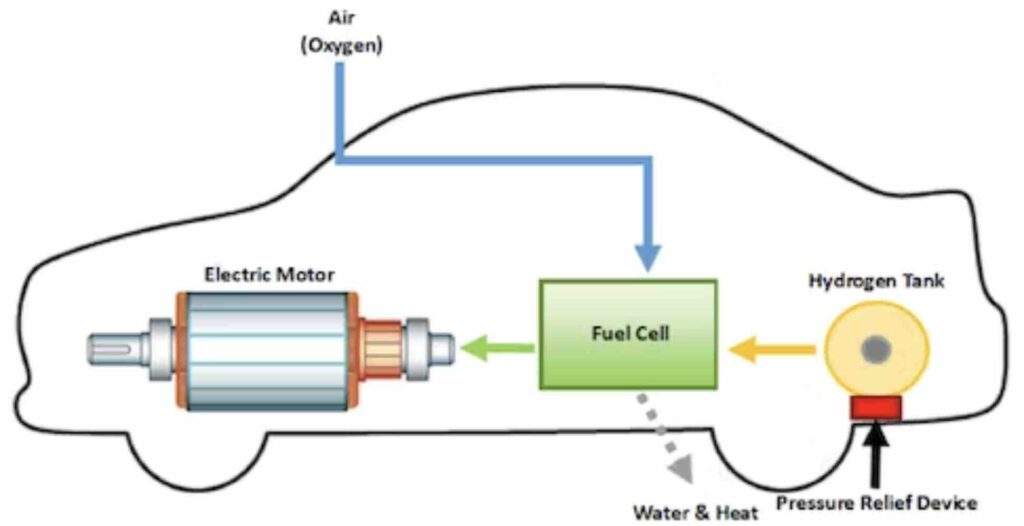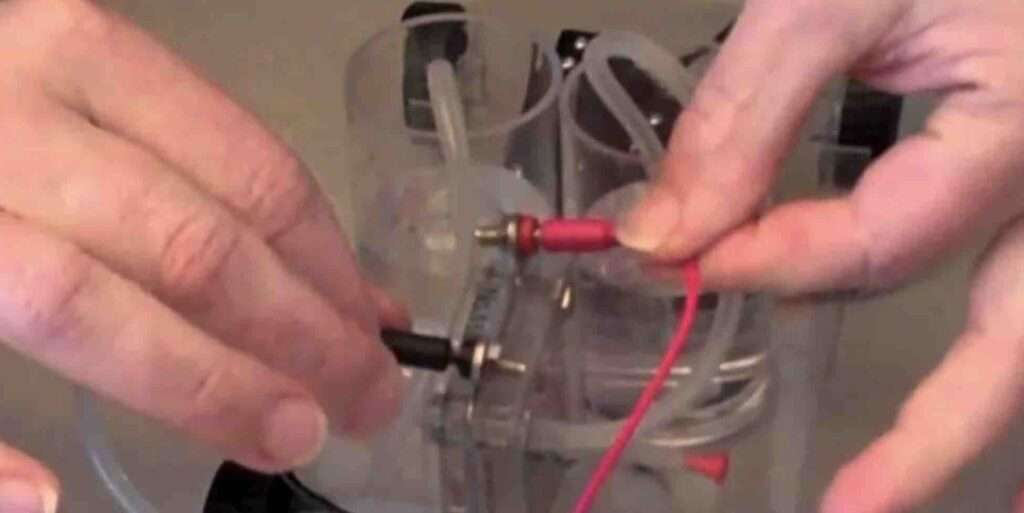Have you wondered why you hear a single clunk when accelerating? It is annoying, especially if you need to know the cause of this issue. However, a few things could have caused a single clunk sound.
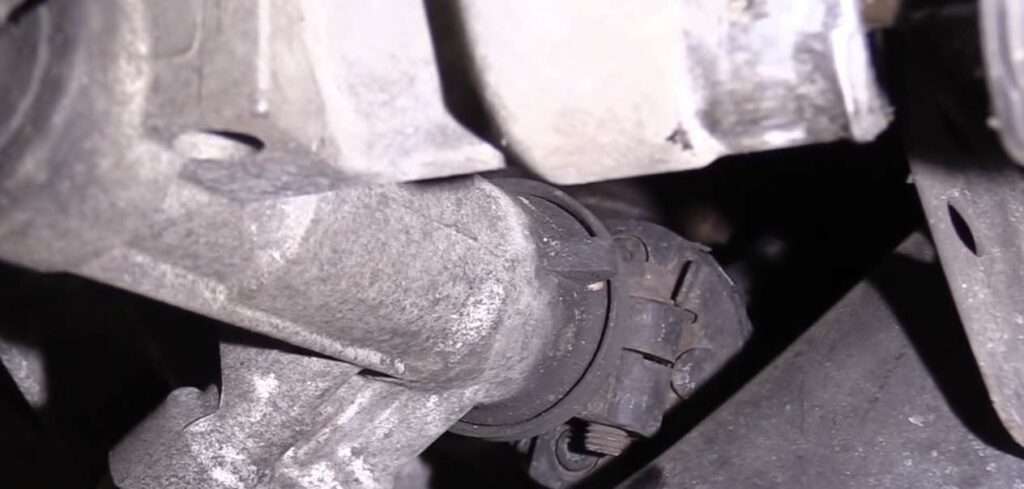
If a single cluck happens when you start accelerating from the stop, it could have been an issue with the transmission. But if you are shifting gears, it could be an issue emanating from a loose heat shield from the exhaust system. On the other hand, if you unexpectedly hear a single clunk when pressing the gas, there could be different faults. But the most common is that it emanates from your engine mounts.
Notwithstanding, the mounts help to keep your engine in place. But over time, they can wear out and become loose, in any case. When this situation comes into play, your engine could slightly move around and make a clunking sound as you accelerate. A single clunk sound can come with various symptoms, such as lower engine performance and increased engine noise.
On the off chance, you seek reasons for the single clunk when accelerating. This article will provide answers to these queries ranging from; why does my car clunk when I press the gas, why do I hear a thud when I accelerate, what causes a clunk in the transmission, what can cause a clunking sound in the front end, other causes of, clunking noise when accelerating, how to fix a single clunk when accelerating, and more.
Be patient; let’s get started right away!
Reasons For The Single Clunk When Accelerating?
The two main reasons for the single clunk when accelerating include the following;
- Worn engine or Motor Mounts
- Worn Transmission Mounts
Let’s explore them in detail below;
1. Worn Motor Mounts
Engine mounts are made with rubber and perform excellent work in dampening vibrations. In most modern vehicles, engine mounts with fluid help in reducing vibrations. As an experienced mechanic, it is a bad motor mount if you hear a clunking noise when accelerating. And it would be best if you replace them immediately since they have failed to reduce vibrations as the vehicle moves.
“`Symptoms Of Worn Motor Mounts
- Check them out here;
- Increased vibrations while driving your vehicle.
- Clunking sounds are coming from the front of your car.
- Jolting when changing gears.
- You would experience a lurch when starting your vehicle.
2. Worn Transmission Mounts
Worn transmission mounts are another reason for a single clunk when accelerating. In like manner, the hydraulic mounts are more functional than the rubber mounts. They have the exact working mechanism as the motor mounts. So, if the transmission mounts wear out, the clunk sound would emanate. They have the same symptoms as the motor mounts.
I recommend that you perform visual checks on the transmission and motor mounts for any damage.
Why Does My Car Clunk When I Press The Gas?
Your car would clunk when you press the gas because of engine trouble, like worn motor mounts, exhaust system, or loose screws. Since the motor mounts are rubber, they can deteriorate and permit the engine to shift as you press the gas pedal.
A loose pipe can cause a clunking noise when you press the gas pedal. It is worth checking that it is tight as you secure loosed screw and muffler.
On the other hand, catalytic converter issues in your exhaust system can also trigger a clunk noise when you press the gas.
Why Do I Hear A Thud When I Accelerate?
You would have heard a thud when you accelerate because of the following potential factors such as;
- Unevenly wear of tires
- Worn-out shocks or struts
- Loosed suspension systems such as faulty coil springs.
Consult a professional to help you ascertain the issues before replacement.
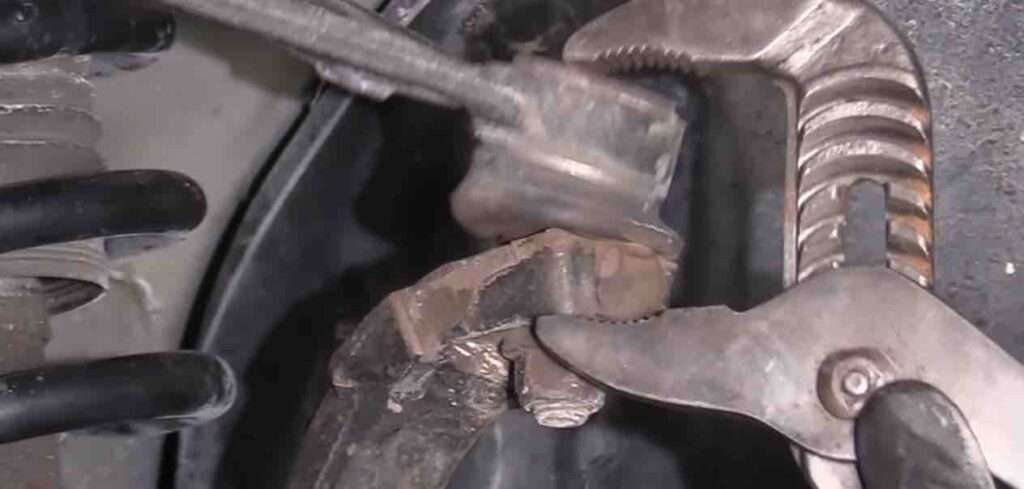
What Causes A Clunk In The Transmission?
Suppose your transmission makes a clunk noise; it could be a severe issue. Check out the causes of a clunk in the transmission below;
- Gear Meshing – Clunking in the transmission is due to an issue with the gears meshing together correctly. As a result, it causes damage and failure of the transmission.
- Torque Converter – Clunking noise could emanate from issues with the torque converter when accelerating or decelerating. Although, the work of the torque converter is to help transfer power from the engine to the transmission. So, if it is not functional, strange noises such as clunking would emanate.
- Transmission Sensor Issues – Computerized transmission sensors control the transmission. A clunk in the transmission can be because of sensors sending incorrect speed information. As a result, it creates issues due to this incorrect regulation.
- Transmission Mounts – Broken trans mounts would cause the transmission to move as you shift gears. As regards this fault, you would hear a clunk noise in the transmission.
Do well to fix transmission issues before they become too severe.
What Can Causes A Clunking Sound In Front End?
The causes of a clunking sound in the front end are due to several issues ranging from; loose brake caliper, loose suspensions, faulty wheel bearing, or even worn ball joints.
The clunk sound in the front as you drive over bumps or turn corners emanates from the suspension. Similarly, hearing clunking while braking would signify a loosed or damaged brake caliper.
In the same vein, other causes of clunking sound in the front end include;
- Worn, damaged, or leaking shocks or struts.
- Damaged or loosed tie rod
- Worn tires or loosed tire lug nuts.
I suggest you get a certified mechanic to check for loose bolts/other components and replace them immediately.
read also: Dirty Transmission Fluid Symptoms and Problems
Other Causes Of, Clunking Noise When Accelerating
Knowing the source of an issue makes it easier to find a solution. Notwithstanding, other causes of clunking noise when accelerating would include;
- A Low Transmission Fluid Level
- A Failing Driveshaft
- A Failing Shift Solenoids
Let’s dive into each of them below;
1. A Low Transmission Fluid Level
The transmission fluid is vital in both automatic and manual vehicles. This fluid helps lubricate the transmission system’s moving components. In automated cars, the tans fluid helps deliver power from the engine to the transmission components.
If the transmission fluid is low, it will trigger clunking noise as you accelerate. Always check your tans-fluid level regularly.
2. A Failing Driveshaft
As you know, the driveshaft drives your vehicle by taking power from the engine to the wheels. Doing that would get your vehicle into motion. Like any other component, the shaft is prone to failure over time. Thus, the loss of the driveshaft would cause clunking noise when accelerating. Similarly, the collapse of the driveshaft can also contribute to the failure of the U-joints.
3. A Failing Shift Solenoids
The transmission system consists of several shift solenoids. These computer-controlled parts of the transmission help to open and close specific valves in the transmission. Thus, the shift solenoids regulate the flow of the transmission fluid for effective shifting gears. So. If they fail, they will cause transmission gear shift issues.
How To Fix A, Single Clunk When Accelerating?
Suppose you are wondering how to fix a single clunk when accelerating. Do a dry park check before fixing it.
It would help if your helper sat in the driver’s seat. Turn the key of the vehicle to unlock the column. Then your helper should rock the steering wheel from side to side as you watch the steering components. Please place your jack and jack stands under the rear axle to keep the weight of the suspension components. Have your helper hold the brakes with your engine idling while repetitively shifting from Drive through Neutral to Reverse.
Look at the fender as your helper has done that. Check for the position of your vehicle’s rubber bushings as you hear them move around. Examine the mounting points on the frame for rust. In older cars, rear-wheel-drive has a live rear axle and coil springs known as a Panhard rod. This Panhard runs diagonally from the vehicle’s chassis to one side of the axle housing. Perchance, the rod’s bushings are the primary source of the clunking sound.
On the other hand, you should check the shocks and internal hydraulics for wear. And also, look out for loosed or dried-out mounting bushings. Replace any faulty, rusted, and broken components of the suspension, engine/transmission mounts, and braking caliper with appropriate parts as regards your vehicle’s brand and model. I recommend you employ the services of a professional to fix a single clunk noise when accelerating.
Conclusion
In my final words, vehicle noise is distracting and annoying. If your vehicle makes a single clunk when you accelerate, it could mean a major or minor problem with your car. However, this single clunk noise could come from the failed driveshaft, faulty shift solenoids, worn engine and transmission mounts, and low transmission fluid levels.
So far, I have detailed the above work. Ensure you address these problems relatively as you contact an expert who will help to check and proffer solutions. Do well to share this write-up with others!
Read also: How To Fix Evaporative Emission System Leak? Large & Small Leak

Uchenna is a Radiographer and Auto parts mechanic who recently got his automotive diploma as an auto repair technician, and since then, has worked on fixing various car problems.
Working as just a radiographer, Uchenna didn’t just get all the fulfillment he desired, because he truly loved doing things tilted toward cars. As a kid, he would take apart his toy cars to see how they worked and would spend hours tinkering with his bike.
So, in 2017 he made the tough decision to become an auto mechanic. He threw himself into his studies and now loves every aspect of what he does.
He gets to work with his hands, solving problems and bringing cars back to life, and sharing his knowledge and easy quick-fix guide online are all part of what makes him feel fulfilled.

